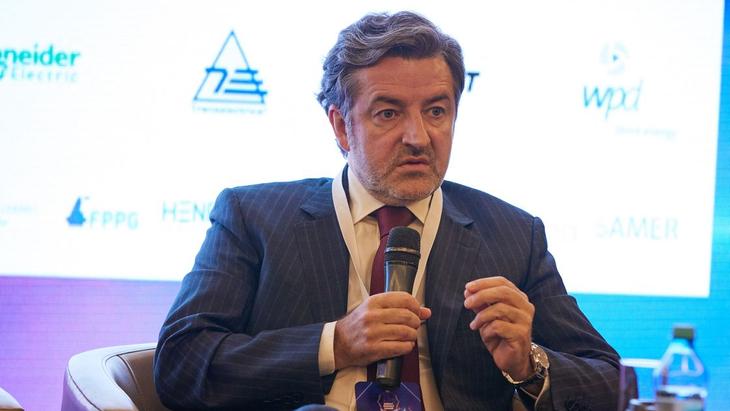The energy transition has entered a definite, determined path, but some problems remain, such as the implementation of smart grid systems to enable mass adoption of renewables in the grid, and distributors are in a delicate situation and have reduced or even stopped investments, said Corneliu Bodea, CEO Adrem, President of the Romanian Energy Center, at the Energy Strategy Summit 2022, an event organised by Energynomics.
“There is some good news: the energy transition seems to be on a definite, determined path. There were discussions post-pandemic, and also because of the conflict in Ukraine, there were times when we were thinking whether we should slow down the transition to a clean economy – and I am glad to feel, that not only in the European Union, but globally, the path to decarbonization is accelerating,” he said.
“But we have an answer, a reaction to this transition – the price of energy. We have to be aware that this is the main obstacle. I am glad that politicians are optimistic, because they will have the hardest task, explaining to people why they will have to pay more than double the price for energy, and that will not be easy. Most countries have chosen the solution of offering state support, but this is the easy solution: hide the problem until, in time, we find a solution. The question is what we will do in the long term, because we are facing energy poverty. The answer is that we must quickly find ways to make energy production, energy consumption, this essential link between production and consumption a way of achieving efficiency. And there is good news – we have investments, we have funds allocated – but there is also less good news – Romania is one of the last places in the EU in terms of smart grid systems implementation. This is a serious thing, something that will slow Romania down in adopting more and more renewables. It is a point of attention that needs to be acted upon immediately and the authorities will have to direct funds,” he said.
The price crisis is affecting the transmission and distribution sectors: the price is 2-3 times higher than recognized in the tariffs, and distributors are in a delicate situation, with many reducing or even abandoning investments for the current year.
“There are a lot of distributors who have stopped investing, we will see what ANRE says about this. Others are reducing investments, which is not a good element that logically leads us down this path of energy transition, of lower prices in the future. So there are positive elements, but also obstacles, and to overcome these obstacles we need two things: more consistency from the regulator, and I’m not just referring to ANRE, but from all those who govern the energy system, because whatever we say, the state has an extremely important involvement in what the energy system means – both in the legislative field, but also in its capacity as administrator”, he added.
“I put my hope in what we call private capital. There is money, there is a need to invest this money, energy is today a financial and business vehicle that can generate profit. I believe that we have a unique opportunity to use this capital to produce what is absolutely necessary – namely the transformation of the Romanian energy system into an efficient, flexible and clean one”, concluded Bodea.
Energy Strategy Summit 2022 was organized by Energynomics with the support of its partners: ABB, BCR, CE Oltenia, Chimcomplex, Eaton, Electrica Furnizare, Electroalfa, EnergoBit, Enevo Group, European Energy, Eximbank, EY, Franklin Templeton, Horváth, ING, Hidroelectrica, Marsh, MET Energy România, Nuclearelectrica, BCR Pensii, Photomate, Powertis, Renomia Gallagher, Schneider Electric, Transelectrica, Volt, wpd.

